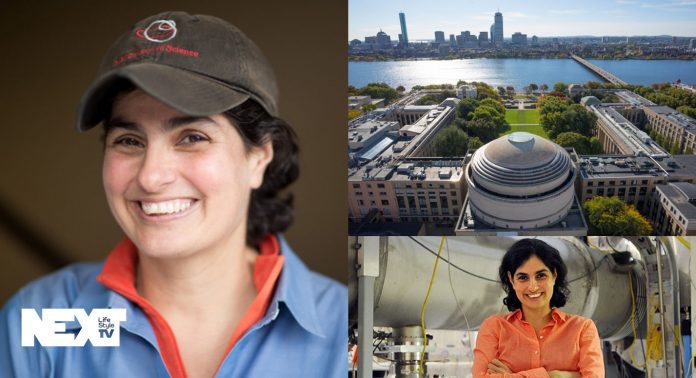Pakistan-born astrophysicist Nergis Mavalvala has been named the new dean of the Massachusetts Institute of Technology’s (MIT) School of Science.
Mavalvala will be the first woman to serve as dean at the university’s School of Science, according to MIT News.
The astrophysics professor is renowned for her pioneering work in gravitational-wave detection, which she conducted as a leading member of LIGO, the Laser Interferometer Gravitational-Wave Observatory. She has received numerous awards and honors for her research and teaching, and since 2015 has been the associate head of the department of physics at MIT.
“Nergis’s brilliance as a researcher and educator speaks eloquently for itself,” said MIT President L Rafael Reif. “What excites me equally about her appointment as dean are the qualities I have seen in her as a leader: She is a deft, collaborative problem-solver, a wise and generous colleague, an incomparable mentor, and a champion for inclusive excellence. As we prepare for the start of this most unusual academic year, it gives me great comfort to know that the School of Science will remain in such capable hands.”
“I have had the privilege of working with some amazing people,” says Mavalvala of her time as associate department head. She credits the many students and colleagues she has worked closely with, especially [department head] Peter Fisher: “Through him, I’ve learned about leadership with compassion, with heart.”
As with most everything she takes on, Mavalvala is energized and optimistic about the role ahead, even as she acknowledges the unprecedented challenges the school faces in these shifting times.
Tinkerer by nature
Born in Lahore and raised in Karachi, Mavalvala, a tinkerer by nature, often got up to her elbows in grease as she absorbed herself in the mechanics of bike repair. In school, she gravitated to math and physics early on, and her parents, strong advocates of both their daughters’ education, encouraged her to apply to college overseas.
At Wellesley College in the United States, she earned a bachelor’s degree in physics and astronomy, before moving to MIT in 1990, where she pursued a Ph.D. in physics.
After completing her Ph.D. work at MIT, Mavalvala went to Caltech in 1997 as a postdoc, studying the cosmic microwave background. In 2000, she joined on as a staff scientist at the LIGO Laboratory, where researchers were collaborating with Weiss’ group at MIT to build LIGO’s detectors. She spent two years with the Caltech team before accepting a position that took her back to MIT, where she joined the faculty in 2002 as an assistant professor of physics.
Since then, she has helped to build up the MIT LIGO group, where she has worked to design and improve different parts of the interferometers. She also has led a team of scientists in developing tools to study and manipulate the barely perceptible quantum effects on LIGO’s massive detectors.
Mavalvala is a recipient of numerous honors and awards, including in 2010 the MacArthur Fellowship. In 2015 she was awarded the Special Breakthrough Prize in Fundamental Physics, as part of the LIGO team. In 2017, she was elected to the National Academy of Sciences. That same year, the Carnegie Corporation of New York recognized Mavalvala as a Great Immigrant honoree.
She is also the first recipient of the Lahore Technology Award, given by the Information Technology University in Lahore.
